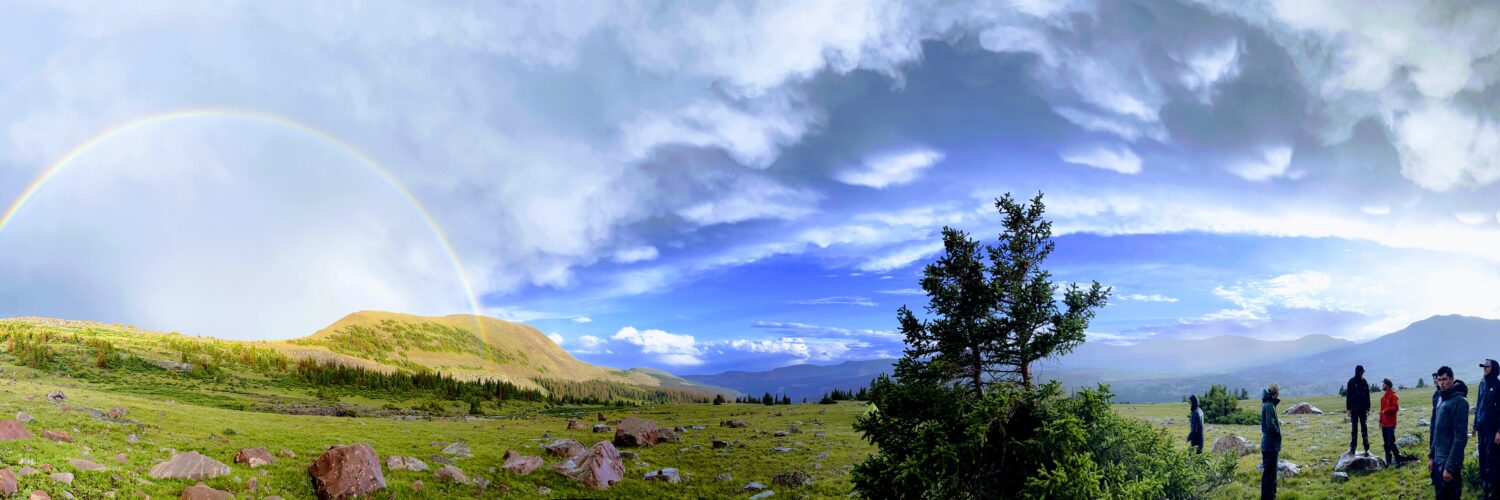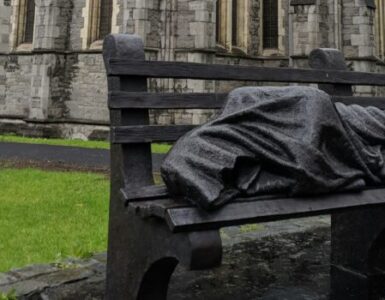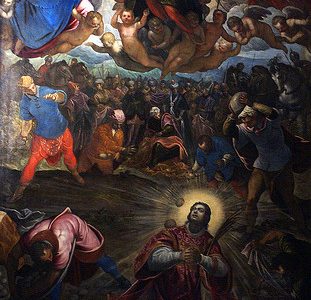Trekking through the foothills of the Wind River Mountains in Wyoming, a group of 6-12 seminarians participating in the COR Expeditions “St. Jogues Project” this summer will embark on an epic spiritual journey. From backpacking through the desert, experiencing 24-hour adoration and the sacraments in the thick silence of the forest, and bonding with homeless in Denver, Colorado, the group will find out what it means to be committed disciples of Christ.
What is the St. Jogues Project?
From June 3rd to August 9th, 2024, the Wyoming Catholic College (WCC) COR Expeditions outdoor ministry program will be launching the St. Jogues Project, intended for seminarians in their beginning, or propaedeutic stage, of formation.
According to the St. Jogues project website, the summer program includes:
three weeks of backpacking in the mountains or desertwilderness medicine and risk management training1-2 weeks of serving in COR Expeditions trips for young adult, high school, and/or family ministryone week serving the homeless in Denver with the Christ in the City organizationone week of vacation
The St. Jogues Project was created “in response to the Pope’s call for additional propaedeutic formation,” said Julian Kwasniewski, the WCC Marketing and Comunications Coordinator.
What exactly is propaedeutic formation, anyway? According to COR Missionary Instructor Andre Klaes, the propaedeutic formation is “like a novitiate, taking that time to intentionally be with the Lord” and grow in “spiritual and human formation.”
Most people know what spiritual formation is, but what about human formation? Dr. Thomas Zimmer, Executive Director of COR Expeditions, shared an example.
“Older vocation directors are saying that the men coming into seminary are different than 20 or 40 years ago,” he said. “Nowadays, it’s so easy to be stuck inside four walls, constantly communicating with your device rather than with humans.”
Dr. Zimmer pointed out that priests especially have to be effective communicators on a face-to-face basis.
During the trip, the seminarians will be fasting from technology, instead focusing on interacting with and building up their group.
The goal of the project: to “enable young seminarians to experience God’s grandeur in the wilderness, gain leadership and mental tenacity experience, minister to young adults, families, and the homeless, as well as develop intentional fraternity,” stated Kwasniewski.
Exercising “grit”
According to Dr. Zimmer, it’s important that seminarians develop “grit.”
“Nowadays, it’s pretty easy to go into your 18th year of life never having been physically pushed,” he said. “Our society is stripping the masculinity out of men. Society tells you you’re mean if you’re masculine. So, it’s an important thing that men need.”
According to Klaes, this is the reason that North American martyr St. Isaac Jogues is the patron saint of the project.
“Prophets and saints went out into the wilderness at the beginning of formation,” he said. “They had the real human experience of doing difficult things. We chose St. Jogues because we want to cultivate heroic masculine evangelizers to the Gospel.”
During the backpacking trip, seminarians will learn more about their identity through the eyes of God.
“The propaedeutic stage is about learning to see yourself and know you’re a beloved son of the Heavenly Father,” Klaes said. “Discernment begins with relationship, knowing your identity, living your mission. In conversation with the chaplain and the other seminarians, they’ll talk about what it means to be the son of the Father, what is the Lord’s voice for you, how does he look on you in particular?”
Faith into action
Perhaps surprisingly, the medical and survival training that the seminarians will receive for the wilderness exploration is also applicable to priestly ministry.
As Dr. Zimmer noted, on the level of the backpacking trip, “When they learn how you can get hurt, they realize they need to be prudent. It sets a good stage for them to pay attention to risk.”
He continued, “From a priest perspective, we want them as future priests to be thinking about risk management from a big-picture perspective – to have what we call a head-on-a-swivel mentality, where they’re constantly noticing and thinking, ‘How can I keep things safe?’”
On the spiritual level, the seminarians will have the chance to share what they’ve learned with others after the backpacking trip. For example, seminarians will team up with the Christ in the City missionaries in Denver. According to the St. Jogues website, they will be trained by the CIC missionaries and will participate in street walks and lunch with the homeless.
“Many of the poor struggle with self-motivation and self-dignity,” Klaes said. “The missionaries of Christ in the City begin by establishing relationships and friendships with the homeless. Through that, they meet a beautiful need: the gift of feeling loved and wanted. They focus on the need of Mother Teresa identified: friendship and feeling loved by God.”
The hope is that the seminarians will experience true transformation after experiencing St. Jogues Project, and that they will spread this transformation in their communities.
Dr. Zimmer shared a story from a similar COR Expeditions event for a seminary in Louisiana, and how this impacted the seminarians who participated.
“At this seminary, the dean told me that the guys didn’t study together or eat together. They didn’t use the ping pong tables,” Dr. Zimmer said. “After coming back from our 21-day trip, they started studying and eating together. They recognized that they are brothers. The brotherhood they formed in seminary and in the summer experience will last. They will have lifelong friends who will hold them accountable to their prayer life.”
This growth in friendship is what Klaes is “most excited” for the St. Jogues Project seminarians to experience.
“If you look at saints, they were surrounded by friends who were saints,” said Klaes. “Having them build these friendships that will carry them through their vocation.”
Perhaps, after these seminarians are ordained, they will come full circle. Just like other recently ordained seminarians who participated in COR Expeditions events, they may once again find themselves backpacking alongside St. Jogues Project seminarians – this time as chaplains.
For seminarians interested in attending: please visit the St. Jogues Project website for more information or to reach out to organizers about registration, receiving college credit for the trip, and scholarship info.
Images courtesy Dr. Thomas Zimmer and the St. Jogues Seminarian Project













